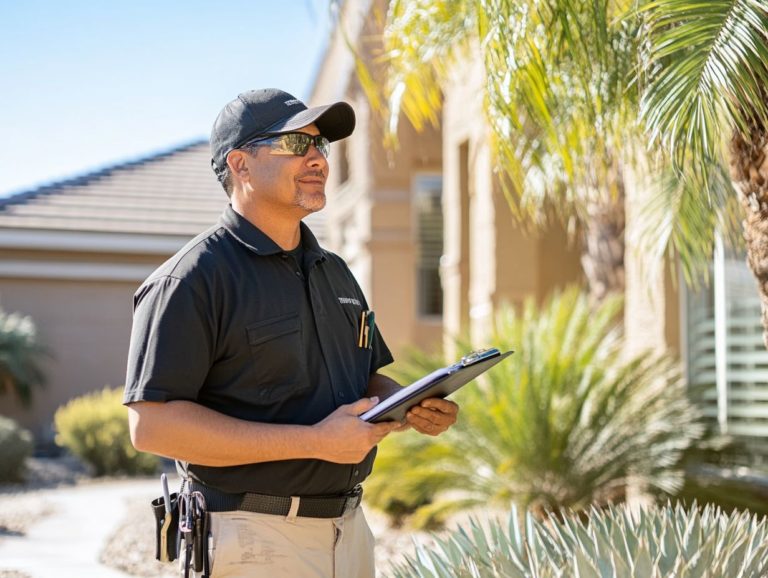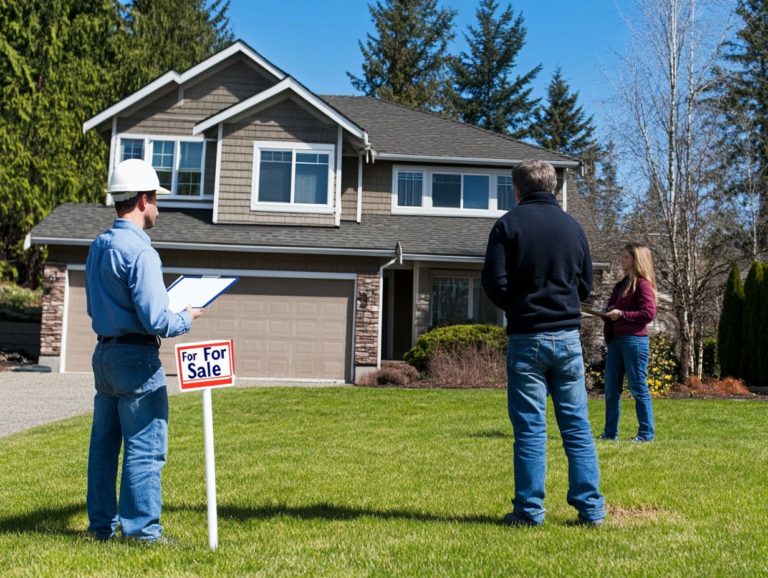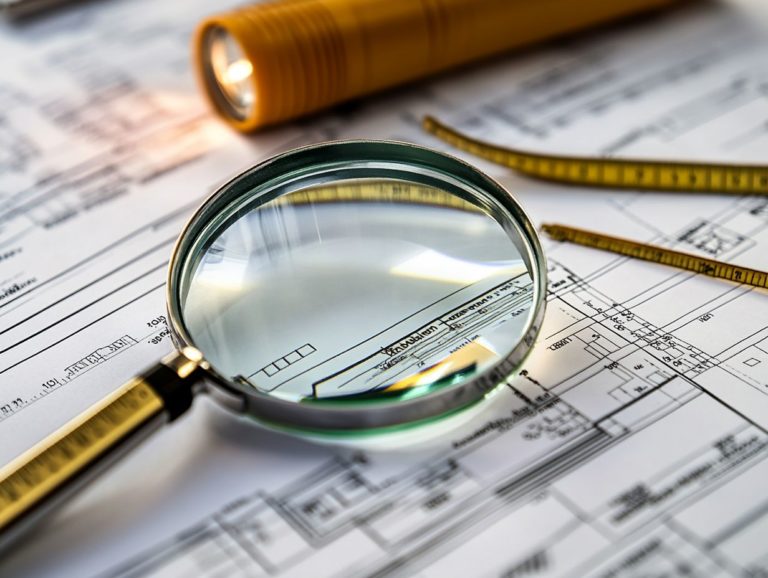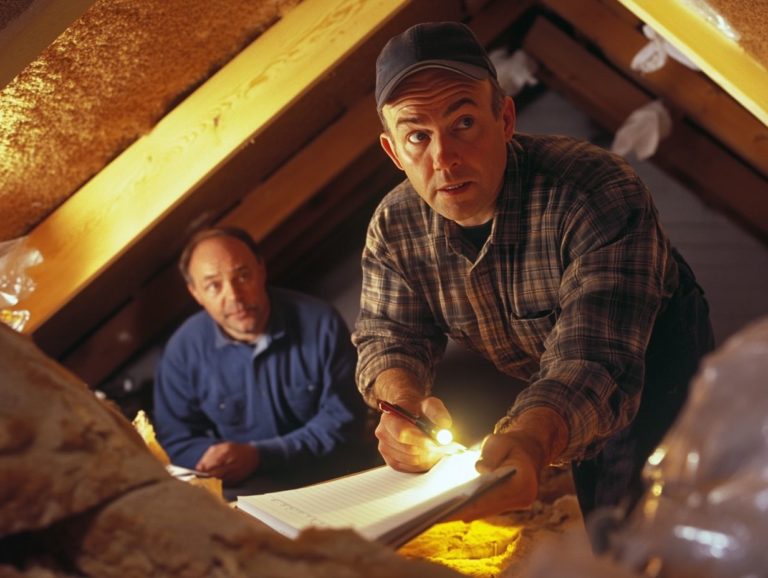How to Follow Up After a Home Inspection
Navigating the aftermath of a home inspection can feel overwhelming, but it is an essential part of your home-buying journey. Understanding the findings, communicating clearly with your inspector, and prioritizing necessary repairs can save you both time and money!
This guide outlines key steps to take after receiving your inspection report, including strategies for negotiating with the seller and ensuring that all issues are addressed before you finalize your purchase. Get ready to convert insights into bold actions!
Contents
- Key Takeaways:
- Why Following Up Is a Must!
- What to Do After Receiving the Inspection Report
- Communicating with the Inspector
- Prioritize and Address Issues
- Negotiate Effectively with the Seller
- Finalize the Sale Smoothly
- Post-Inspection Considerations
- Frequently Asked Questions
- What should I do after receiving the home inspection report?
- Should I attend the home inspection?
- Who is responsible for making repairs after the home inspection?
- Do I need to schedule a follow-up inspection?
- How long do I have to follow up after a home inspection?
- What if the seller refuses to make needed fixes after the home inspection?
Key Takeaways:

Why Following Up Is a Must!
Following up after a home inspection is essential for both home buyers and sellers. To ensure everything is handled properly, knowing how to follow up on any findings quickly is crucial to protect your investment!
This not only facilitates a smoother transaction but also safeguards your investment in a significant asset, especially in today s fluctuating market.
Partnering with a knowledgeable buyer’s agent or seller’s agent can streamline communication and repair negotiations, ensuring both parties remain well-informed and satisfied regarding safety concerns and repair requests.
What to Do After Receiving the Inspection Report
Upon receiving the inspection report, it is essential to carefully examine its details. Pay close attention to potential foundation issues, pest infestations, or roof damage that may require immediate attention.
This report is not just a document; it is a vital resource for you as the home buyer and the home seller. It outlines necessary repair requests and provides a clear picture of the property’s overall condition, guiding your next steps with clarity and confidence.
Understanding the Findings
Understanding the findings of the inspection report is essential for you and all parties involved. It brings to light critical safety concerns, such as electrical hazards and pest infestations, that could impact the value of your home.
By carefully reviewing the details, you can ensure that key repair requests emerging from the home inspection are addressed appropriately. The report dives into various sections, pinpointing common issues related to heating and cooling problems (HVAC), plumbing problems, and overall structural integrity.
You might discover specific concerns, such as outdated heating and cooling systems that could drive up your energy costs, or plumbing leaks that, if left unchecked, could result in extensive water damage.
Structural evaluations often reveal foundational weaknesses that could jeopardize the safety of occupants. The clarity and thoroughness of these findings are crucial; they enable you to make informed decisions and facilitate transparent negotiations.
Communicating with the Inspector
Effective communication with the inspector is essential for you to fully understand the nuances of the home inspection report. Focus on critical areas like the heating and cooling system, plumbing issues, and potential electrical hazards.
Engaging in a thorough discussion allows you, whether as a home buyer or seller, to clarify any uncertainties and prepare for the next steps. By asking specific questions, you can dive deeper into the findings and gain a clearer picture of the property s overall condition.
This proactive approach helps you grasp the implications of each issue and highlights the importance of seeking expert advice for any technical matters. Unaddressed technical problems can lead to costly repairs and serious safety risks, making it imperative to understand their significance.
Therefore, seize the opportunity to inquire about the extent of necessary repairs and how these issues might impact the safety and upkeep of your future home.
Prioritize and Address Issues
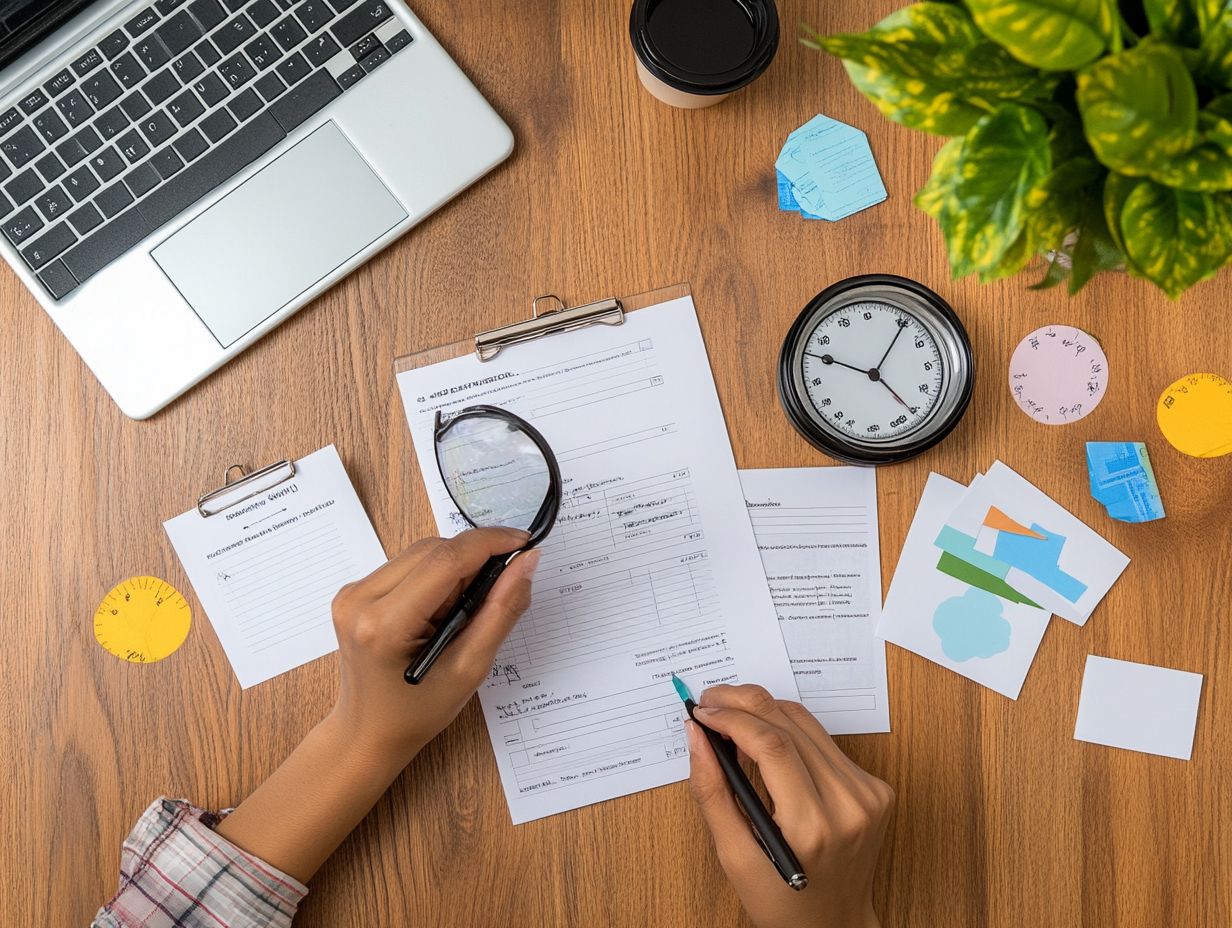
Addressing issues highlighted in the home inspection report is crucial for ensuring safety concerns and structural problems are resolved before the appraisal and closing process.
As a home buyer or seller, categorize your repair requests by urgency. Consider factors like safety hazards and their potential impact on property value to enable smoother negotiations.
This approach enhances the overall transaction experience and protects your investment in the long run.
Choose Your Top Repairs Wisely
Choosing which repairs to tackle first is critical in your home buying or selling journey, especially when safety concerns from the inspection report arise.
As a home buyer, evaluate repairs based on urgency and how they could affect your living conditions and the overall safety of the property.
Sellers should focus on repairs that make the home more attractive to potential buyers and those that could boost its value in the eyes of appraisers.
Clearly communicating these priorities with your real estate agent ensures both parties concentrate on repairs that maximize your investment and minimize future surprises. This collaborative approach paves the way for smoother transactions and favorable outcomes.
Negotiate Effectively with the Seller
Use the inspection report as a negotiation tool to influence repair discussions between you, the home buyer, and the seller.
Present documented issues like heating, ventilation, and air conditioning (HVAC) failures or plumbing problems to advocate for necessary repairs or adjustments to the sale price, creating a win-win scenario.
Involving both your agent and the seller s agent can elevate the negotiation process. Their expertise and objective insights ensure both parties feel heard and respected throughout discussions.
Leverage your agent to highlight comparable market repairs while the seller can rely on their agent to emphasize the property’s condition to future buyers.
This collaborative approach fosters transparency and opens the door to creative solutions, like offering repair credits or flexible timelines, leading to satisfactory outcomes that maintain the integrity of the sale.
Use the Inspection Report as a Tool
The inspection report is your secret weapon during negotiations, providing solid evidence for necessary repairs that can sway the buyer’s decision-making. As a home buyer, use this report for engaging discussions with your buyer agent. Sellers can leverage it to justify their asking price based on the property’s condition.
This isn t just about pointing out issues that need fixing; it s about strategically prioritizing which repairs to discuss. Frame conversations around safety or functionality improvements. For instance, if a roof leak is discovered, making a case for addressing it is vital for preserving long-term value.
If you re a seller, emphasize the positive aspects of the inspection to reinforce your asking price, such as a recent HVAC upgrade.
Real estate agents play a crucial role in this process, serving as skilled intermediaries who can negotiate effectively for both parties. They offer valuable insights and strategies, ensuring discussions remain constructive and focused while guiding you through the emotional landscape of negotiations.
Finalize the Sale Smoothly
Finalizing the sale of a home requires ensuring that every repair noted in the inspection report has been completed to the satisfaction of both the buyer and seller.
Addressing these repairs is essential for a seamless closing process and can help mitigate future safety concerns or potential disputes.
Taking these steps facilitates smoother transactions and fosters trust and transparency between all parties involved.
Ensuring All Repairs are Completed
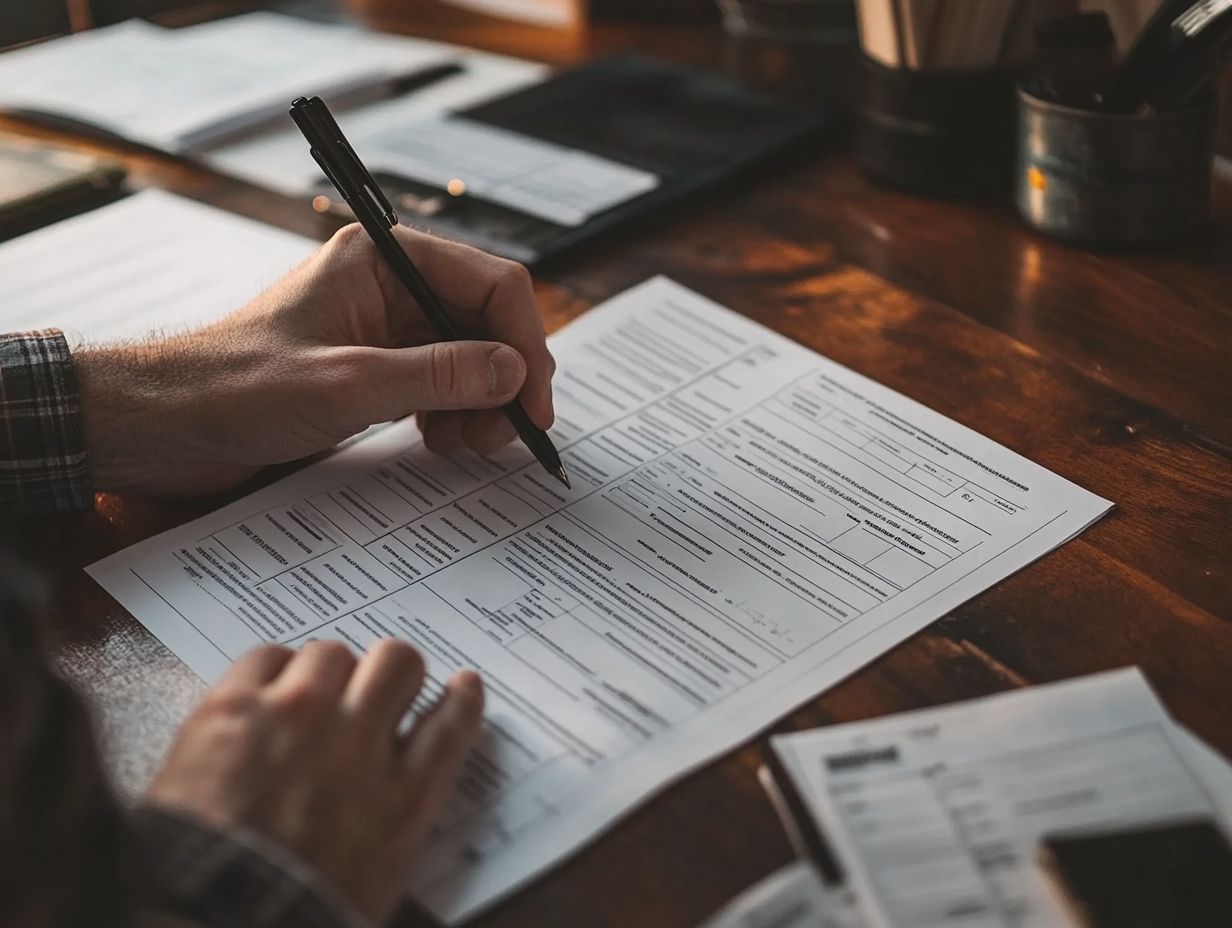
Confirming all repairs before you close is vital! It saves you from headaches later on. Ensuring that all repairs are completed before the closing process is crucial to avoiding complications down the line. Unresolved issues highlighted in the inspection report can result in disputes or delays that neither party wants.
You should make it a priority to confirm that all agreed-upon repairs meet the necessary standards and are properly documented. Thorough inspections not only validate the quality of the work performed but also foster transparency and trust between you and the other party involved.
Without careful follow-up inspections, there’s a real risk that some repair tasks might slip through the cracks. This could ultimately affect the home s value and safety.
Clear records benefit both sides, providing peace of mind as you finalize the transaction. Proper documentation acts as an essential safeguard, confirming that all repairs have been satisfactorily completed and ensuring that everyone is on the same page. This reduces the likelihood of future disagreements.
Post-Inspection Considerations
Post-inspection considerations are crucial for you as both a home buyer and seller, ensuring that the transaction unfolds seamlessly and aligns with your expectations. These considerations encompass vital follow-up actions stemming from the inspection report, finalizing repair negotiations, and understanding what to do after a home inspection, as well as comprehending how the findings impact the overall sale.
Maintaining Communication with Your Agent
Maintaining open lines of communication with your buyer agent or seller agent is essential during the post-inspection period. This ensures that everyone involved is aligned and well-informed. Regular updates will facilitate post-inspection negotiations and clarify expectations, paving the way for a smoother transaction process.
Consider establishing routine check-ins, whether weekly or bi-weekly, to discuss any developments or concerns that may come up. Leveraging digital tools like shared documents or messaging apps can significantly streamline updates and keep everyone in the loop, enabling you to address issues promptly.
Being transparent about any concerns related to inspection findings promotes a collaborative approach. This not only helps navigate potential roadblocks but also fosters trust between you and your agent, which can be invaluable during the often-stressful real estate journey.
Frequently Asked Questions
What should I do after receiving the home inspection report?
After receiving the home inspection report, you should carefully review it and make a list of any major or minor issues that were identified. It is also important to discuss any concerns with your real estate agent and determine how to handle home inspection contingencies and what repairs or negotiations may be necessary.
Should I attend the home inspection?
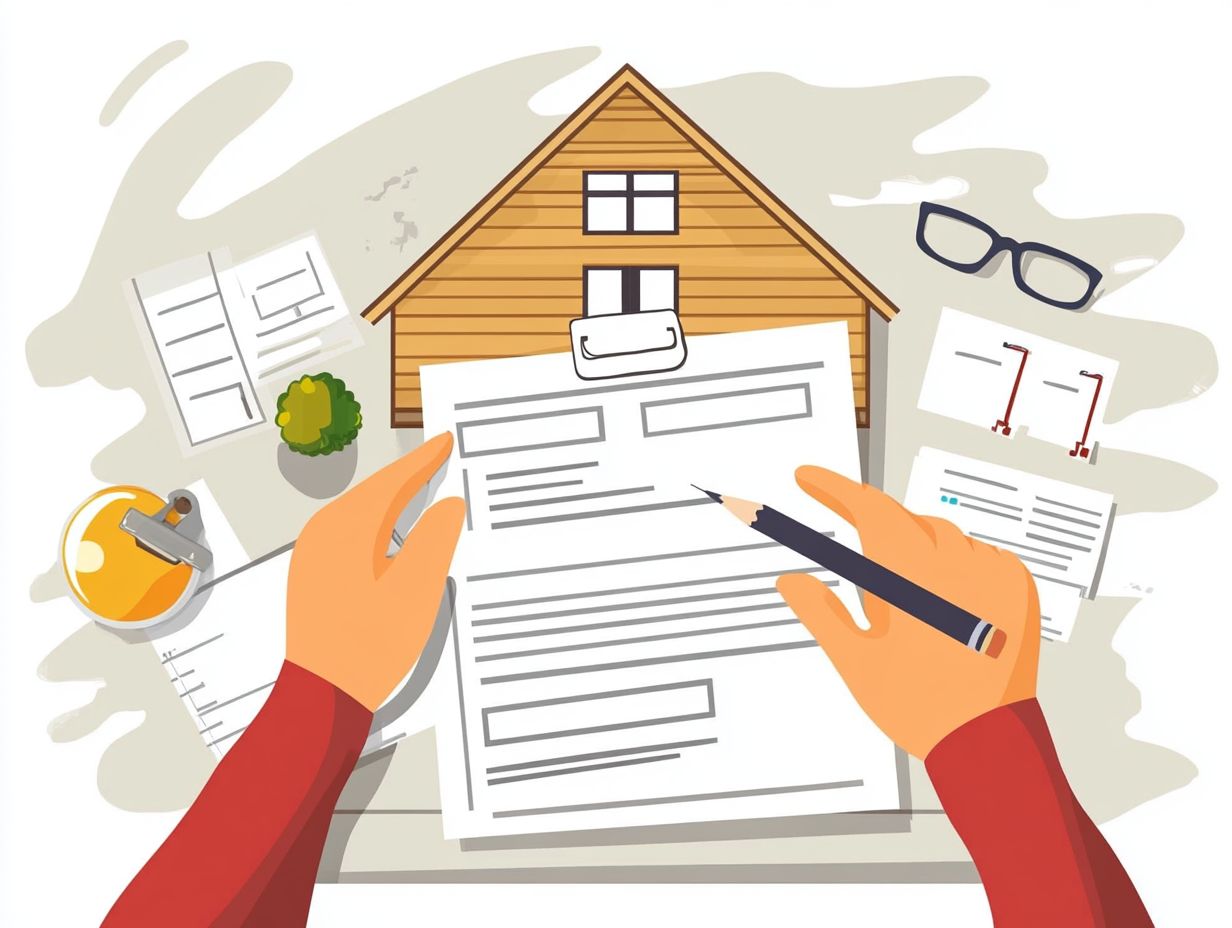
It is highly recommended that you attend the home inspection. This will allow you to ask any questions or address any concerns directly with the inspector. Additionally, knowing how to follow up after a negotiation can give you a better understanding of the condition of the property and help you make informed decisions about the purchase.
Who is responsible for making repairs after the home inspection?
The responsibility for making repairs after a home inspection depends on the terms of your purchase agreement. In most cases, it is the seller’s responsibility to make any necessary repairs, but this can be negotiated between the buyer and seller.
Do I need to schedule a follow-up inspection?
In some cases, it may be necessary to schedule a follow-up inspection, especially if there were major issues identified during the initial inspection. Knowing how to handle home inspection repairs can give you peace of mind that the repairs were made properly and that there are no other hidden issues.
How long do I have to follow up after a home inspection?
The timeline for follow-up after a home inspection will depend on the terms of your purchase agreement. Typically, buyers have a set amount of time (usually 7-10 days) to respond to the inspection report and negotiate any repairs or credits with the seller. For guidance on this process, check out how to follow up with your home inspector.
Don’t wait! Ensure all repairs are documented before closing. If you have any questions or need assistance, feel free to reach out for help with how to get the most out of your home inspection follow-ups.
What if the seller refuses to make needed fixes after the home inspection?
If the seller says no to making fixes after the home inspection, you have options. You might choose to back out of the purchase agreement.
Another option is to negotiate a credit or a lower sale price. Talk with your real estate agent about what might work best for you.

